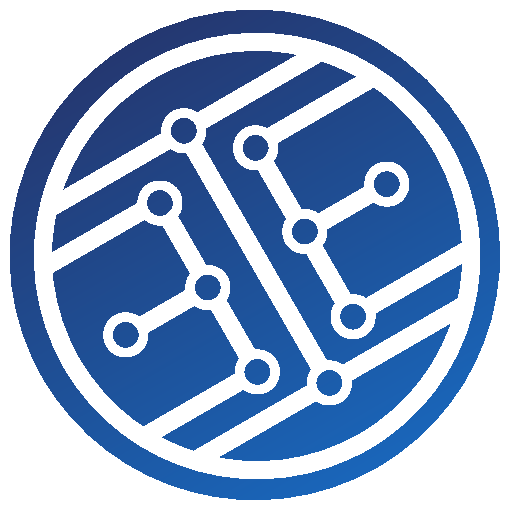 |
UNIVERSITY OF THE WITWATERSRAND,
JOHANNESBURG School of Electrical and Information Engineering |

UNIVERSITY OF THE WITWATERSRAND,
JOHANNESBURG
School of Electrical and Information
Engineering
Course Brief and Outline—2026
Professor Alan Robert Clark (course co-ordinator)
(011) 717-7223
Alan.Clark@Wits.ac.za
Dr. Thabang Rapudu
(011) 717-7279
Thabang.Rapudu@Wits.ac.za
Electromagnetics pervades almost every aspect of our everyday lives, WiFi, 5G, LTE, Bluetooth, GPS, Microwave Ovens, Radar, Remote Sensing, Medical Electronics, Roving Mars Robots, Pictures of Pluto…
All these interact with one another and with humans, but this is unseen: Hence the need for knowledge in this area to minimise nonsense!
In many ways, Electromagnetics can be viewed as a superset of circuit theory, with the power flow through the mysterious “ether” as opposed to a physical circuit. Thus the student is exposed to a broader and more general context than before.
Electromagnetics lays the foundation for the High Frequency course, where antenna design is important for the eventual implementation of any wireless communication system. Any high-speed (Analogue or Digital) electronic circuit cannot be understood without these techniques.
On successful completion of this course, the student is capable of:
Thorough knowledge of basic physics, especially the field components, and a thorough grasp of mathematics, especially vector calculus.
All submissions must be in strict accordance with the guidelines contained in the School’s Blue Book and the rules contained in the School’s Red Book. No exceptions will be considered.
Tuts.
| Assessment | Duration | Component | Method & | Calculator | Permitted Supporting |
| Contributor | (hours) | Yes/No | Weight% | Type | Material |
| Test | 1 | No | 25% | 2 | Note |
| Lab | 6 | No | 20% | 3 | N/A |
| Exam | 3 | No | 55% | 2 | Note |
Note:
The examination will cover all material covered in the course, and especially discussion topics in lectures and tutorials.
The student’s understanding of the fundamental aspects of the course will be probed. Exam questions etc will need to be answered in order to answer the question: “WHY?” as opposed to the simplistic “HOW”. I am not attempting to assess a simple methodology, I will assess fundamental understanding of concepts.
Note that the onus is upon the student to convey this understanding in an examination. A terse, correct “answer” may not necessarily attract marks! Please refer to my exam writing skills notes at https://YingTongDiddleiPo.eie.wits.ac.za/ExamWritingSkills.html.
For the purpose of Rule G.13, satisfactory performance in the work of the class means attendance and completion of prescribed laboratory activities, attendance at tutorials designated as compulsory in this CB&O, submission of assignments, writing of scheduled tests unless excused in terms of due procedure.
| Description of applicable Graduate Attributes | Level |
| GA1: The course project and exam are composed of HF problems that need solving. | Developing |
| GA2: The project, in particular, requires the application of engineering knowledge. | Developing |
| GA5: The project and the laboratory require methods, tools and skills associated with Antenna design: simulation software, measurement techniques. | Developing |
| GA6a: The project and laboratory require a formal Technical Report. | Developing |
| GA9: The project is entirely outside of the scope of the lectures, requiring independant learning. | Developing |
Covid-19 is not Covid-26: Interaction is thus via lectures for those that wish to engage with real input. For those that eschew that, the (Hastily Assembled) material is still available on Ulwazi, but good luck to you :-)
A form of interaction is the Ulwazi Discussions which does support Mathematics (via MathJax). The advantage is that the Discussion is open to all in the class, and can be accessed at any time. I will thus also be using the Discussion asynchronously, checking in several times per week. Please stick to using the Pinned Generalised ChatRoom Facility.
Please do not email me questions, as the rest of the class will not benefit: use Discussions.
No text perfectly covers the course material: all books have flaws. The Prescribed Text is:
There are no notes handed out for this course.
In addition, there is a 122 page “Study Guide”, by some obscure bloke:
Available from the Course Home Page. (See below).
There are some excellent eTexts available, see Course Home Page…
If it can be obtained the Third Edition of “Electromagnetics” by J.D. Kraus (McGraw-Hill) is definitive. The Fourth Edition is OK, the Fifth Edition, co-authored by Fleisch, is completely useless.
There will be three lectures per week. Students are expected to attend all lectures and to make their own notes.
I keep strictly to South African Standard Time (SAST). I respect your time, and will not drag on my lectures, and I expect you to respect my time, and that of your colleagues, by arriving on time, so that latecomer disruption is avoided.
There will also be one tutorial per week. This is largely a Question and Answer format, where diverse topics are discussed. All such topics are examinable.
There is no project associated with this course.
There will be a laboratory associated with this course normally held in the Basic Laboratory, covering topics taught in the course, as well as topics not formally dealt with in lectures.
Students who have not done the lab preparations will be asked to leave the laboratory.
School Policy states that there are no lab exemptions.
Via Ulwazi Discussions. It is generally convenient to grab me between and after lectures.
The use of generative AI in this course is limited to the Project and Laboratory. Consult the Red Book for further details. For example, generative AI may be used for grammar, clarity, and concept-checking questions, but not for drafting text, writing code, analysis, or summarizing unread sources.
For other information related to the course, please refer to the
Course Home page at
https://YingTongDiddleiPo.eie.wits.ac.za/elen3000Home.html
The online version is https://YingTongDiddleiPo.eie.wits.ac.za/elen3000outline.html
This document was translated from LATEX by HEVEA.